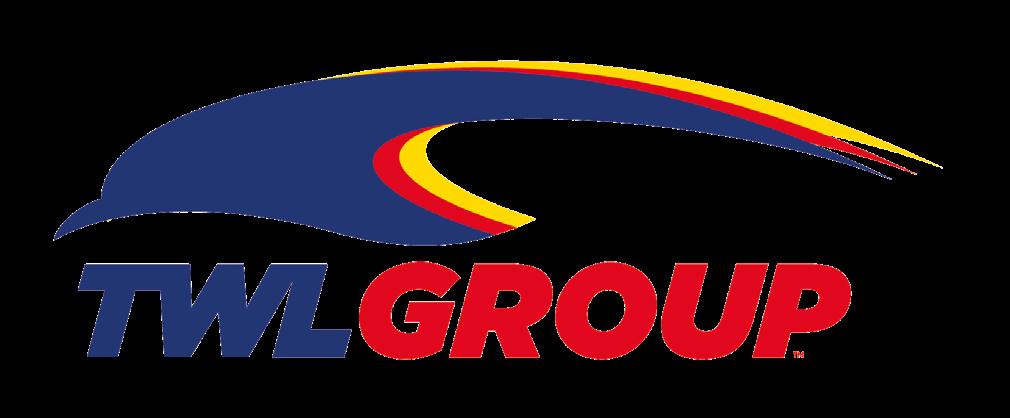
A PROMINENT PLAYER IN PAPUA NEW GUINEA









AIn Papua New Guinea’s resource-driven economy, TWL Group is a prominent player in logistics and transportation. Managing Director, Larry Andagali, and COO, Andrew Fury, discuss the company’s commitment to fair representation and benefits for local communities
Writer: Rachel Carr | Project Manager: Andrew Lewis
s the most populous Pacific Island country, Papua New Guinea (PNG) boasts unique topography characterised by tropical rainforests, breathtaking highland peaks, and unspoiled coastlines, harbouring much of the world’s biodiversity.
However, PNG is more than an ecological treasure; it is rich in resources such as gold, copper, crude oil, and natural gas, which play a significant role in the country’s economy.
TWL Group (TWL), a world-class logistics services provider based in PNG, has an illustrious and storied history in the country, with its name inspired by the tale of a true Indiana Jones-type adventurer.
In 1936, Jack Hides embarked on an expedition into the heart of PNG, discovering the people of Hela Province living in hidden mountain valleys after assuming that only the coastal areas were inhabited.
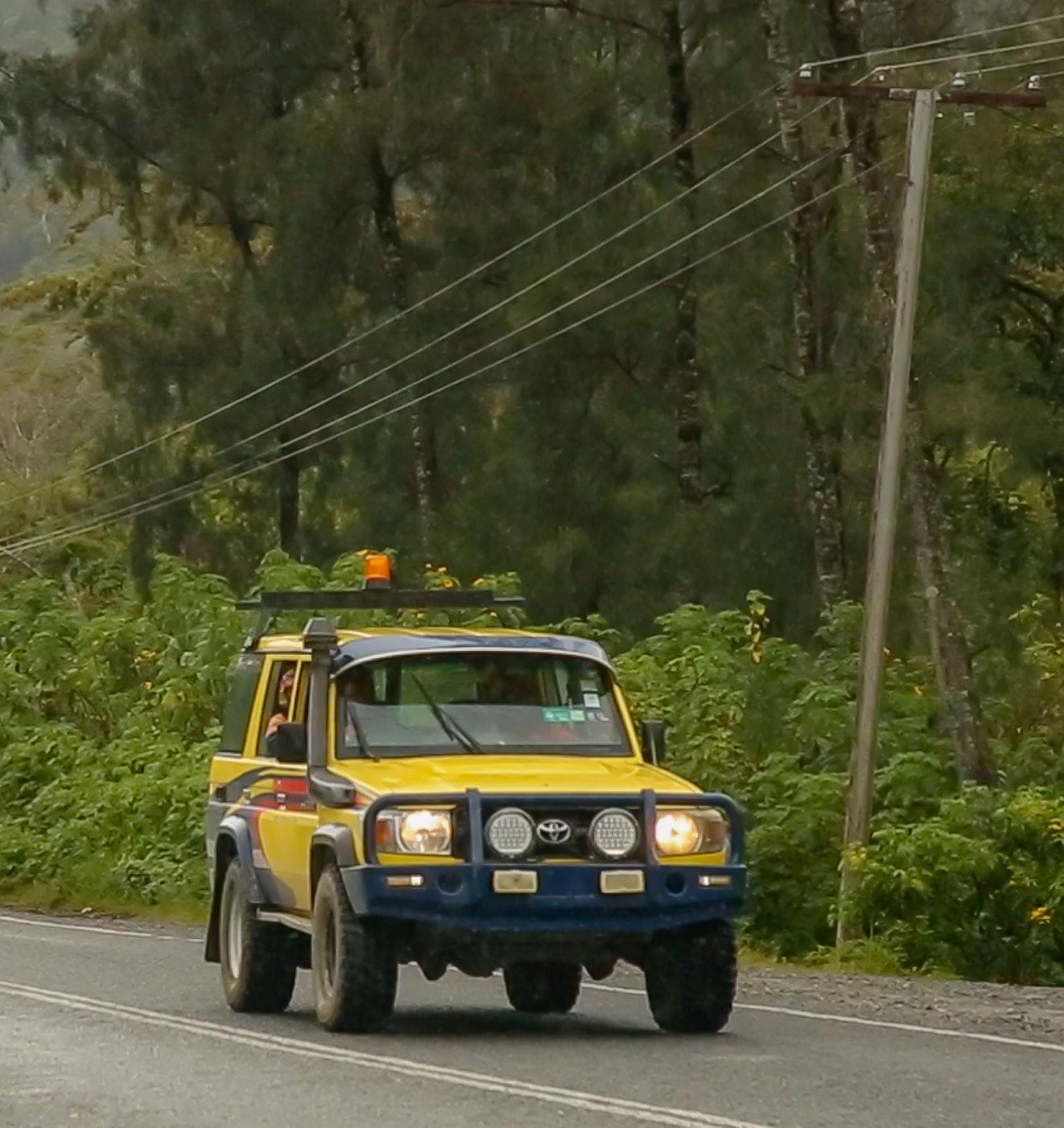
Hides observed that the local population in the province lived in an advanced state of subsistence, with farming as a prevalent way of life, and consequently named the area Papuan Wonderland.
“We inherited the Trans Wonderland Limited name from our shareholders as it unites everyone,” introduces Larry Andagali, Managing Director.
Established in 2009, TWL’s founding contract was
a USD$192 million transportation undertaking for ExxonMobil as part of the PNG Liquefied Natural Gas (LNG) project.
It is one of the largest landowner companies in the PNG LNG project area, encompassing seven petroleum development licenses (PDLs) and a range of associated pipeline, hydrocarbon processional, and operational facilities.
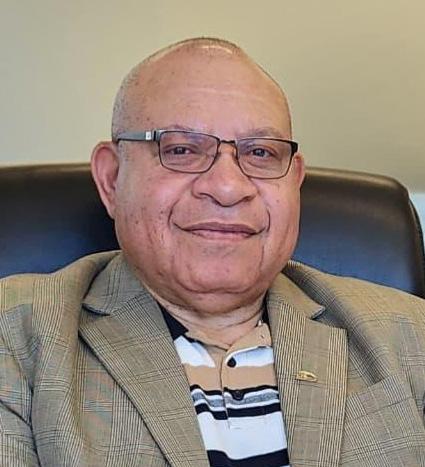
“WE
ARE IN DISCUSSIONS WITH PNG POWER, WHICH SUPPLIES DIESEL FOR THE COASTAL CENTRES, AS WE WANT TO REPLACE ALL THE DIESEL GENERATORS WITH MORE COST-EFFECTIVE LNG ONES”
–
LARRY ANDAGALI, MANAGING DIRECTOR, TWL GROUP
“The PNG LNG project touched many people on the wellhead, pipeline, and land where road access was built and the airfield was constructed,” Andagali adds.
“We created sustainable business for these people beyond the PNG LNG project construction phase.”
Andagali aimed to ensure fair representation and benefits for everyone in the project area, bringing them all on board for the journey.
Under his astute leadership, TWL has become one of PNG’s major transportation and logistics companies.
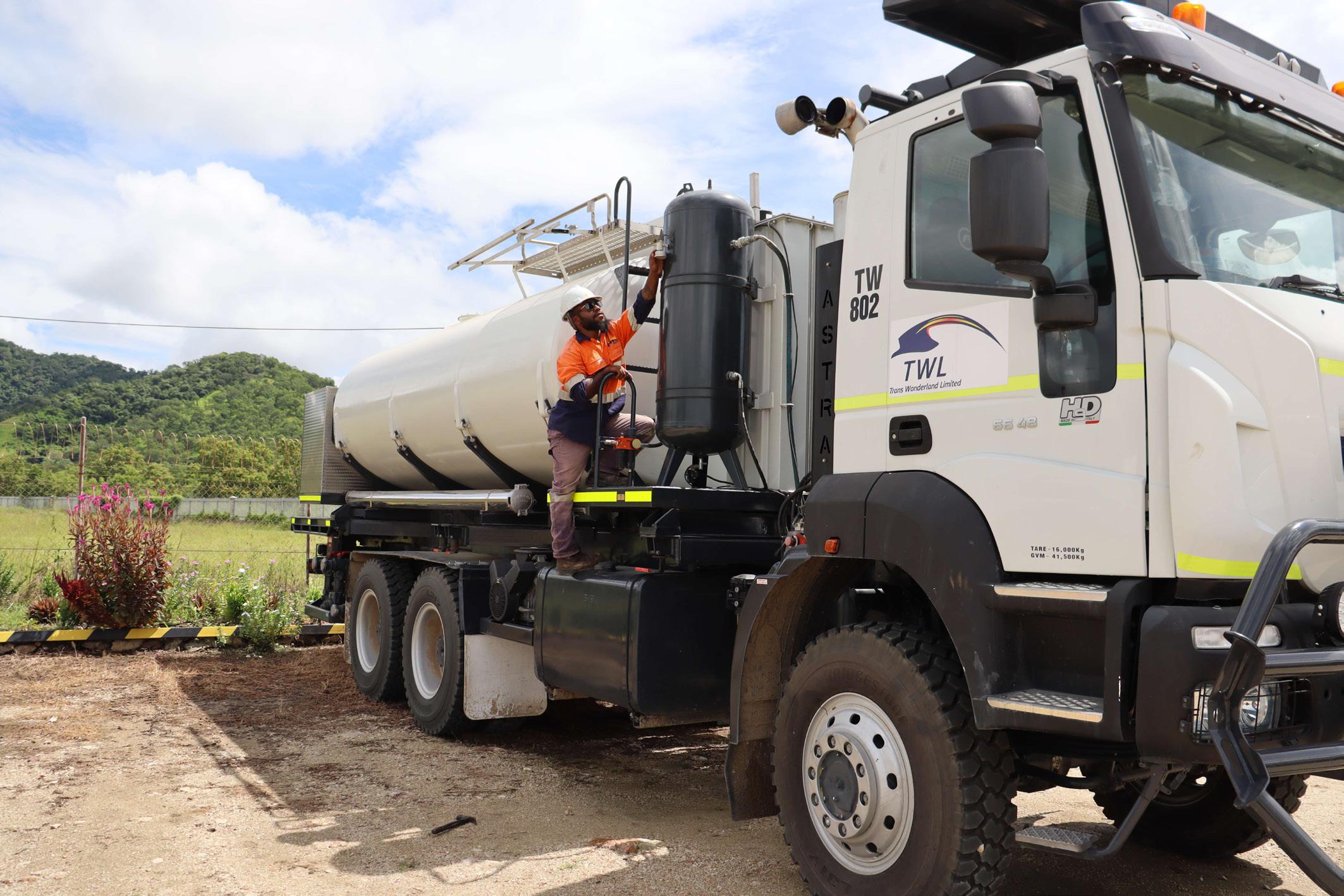
TWL comprises several divisions, including TWL Trucking, TWL Energy Ventures, and Argo Marine (formerly TWL Logistics).
TWL Data, meanwhile, was established in 2014 and operates a Cessna Caravan aircraft equipped with a light detection and ranging (LiDAR) camera for geospatial surveys in various regions, including PNG, Australia, Guam, Indonesia, and New Zealand.
The division primarily serves power line companies as well as government agencies and defence operations in Australia and the US.
Lastly, the TWL Fuels division was recently formed in mid-2021 and deals in the wholesale supply and distribution of petroleum products.
“We are also developing a new division, TWL Supply Chain Solutions, which will expand beyond trucking into warehousing, freight forwarding, and customs clearance,” informs Andrew Fury, COO.
Alongside its numerous divisions, TWL formed PenTrans in 2022, a joint venture company (JVC) with Pentagon Freight Services to support the PNG operations of global energy company Santos.
Sarens PNG, another JVC with crane rental services, heavy lifting, and engineered transport leader Sarens, specialises in heavy lifting and transport solutions.
TWL believes that diversification is not only the key to growth, but crucial to building a lasting legacy.
“We’ve diversified our integration strategies, focused on vertical integration to maintain our supply chain, and identified opportunities in warehousing and laydown services,” states Fury.
Third-party logistics (3PL) and fourth-party logistics (4PL) are essential for many clients seeking end-to-end solutions as TWL aims to be an integrated transport and logistics business.
“Our vision is to be PNG’s most respected transport and logistics company, with a long-term growth plan to expand into the broader region,” Fury shares.
“We were fortunate to establish strong contracts with Santos and ExxonMobil, which helped us create a solid foundation.
“We plan to expand beyond oil and gas into other areas such as mining, fuel transport, local trucking, and food distribution. This reflects our strategy of diversifying our services and industries,” he affirms.
TWL emphasises that the quickest way for a company to significantly grow is through acquisitions, as organic growth is a much slower process and takes time and effort in a different way.
Andrew Fury, COO: “Our primary focus is training young Papua New Guineans to eventually replace current managers and supervisors. There is also a global shortage of quality truck drivers, heavy vehicle fitters, and auto electricians, and we recognise the challenges of these professions.
“We’ve established a registered apprenticeship programme in PNG to help combat this, in which we recruit young people from local schools and technical colleges and provide them with two to three-year apprenticeships. This also includes six weeks of on-the-job training for younger students, giving them practical experience in auto electrics and heavy vehicle maintenance.
“Additionally, we have a development pathway programme open to motivated individuals, ensuring a wider succession plan for our current managers. There are also five young Papua New Guineans, aged 27 to 35, rotating through various departments to gain exposure to HR, finance, operations, health and safety, and strategic planning.
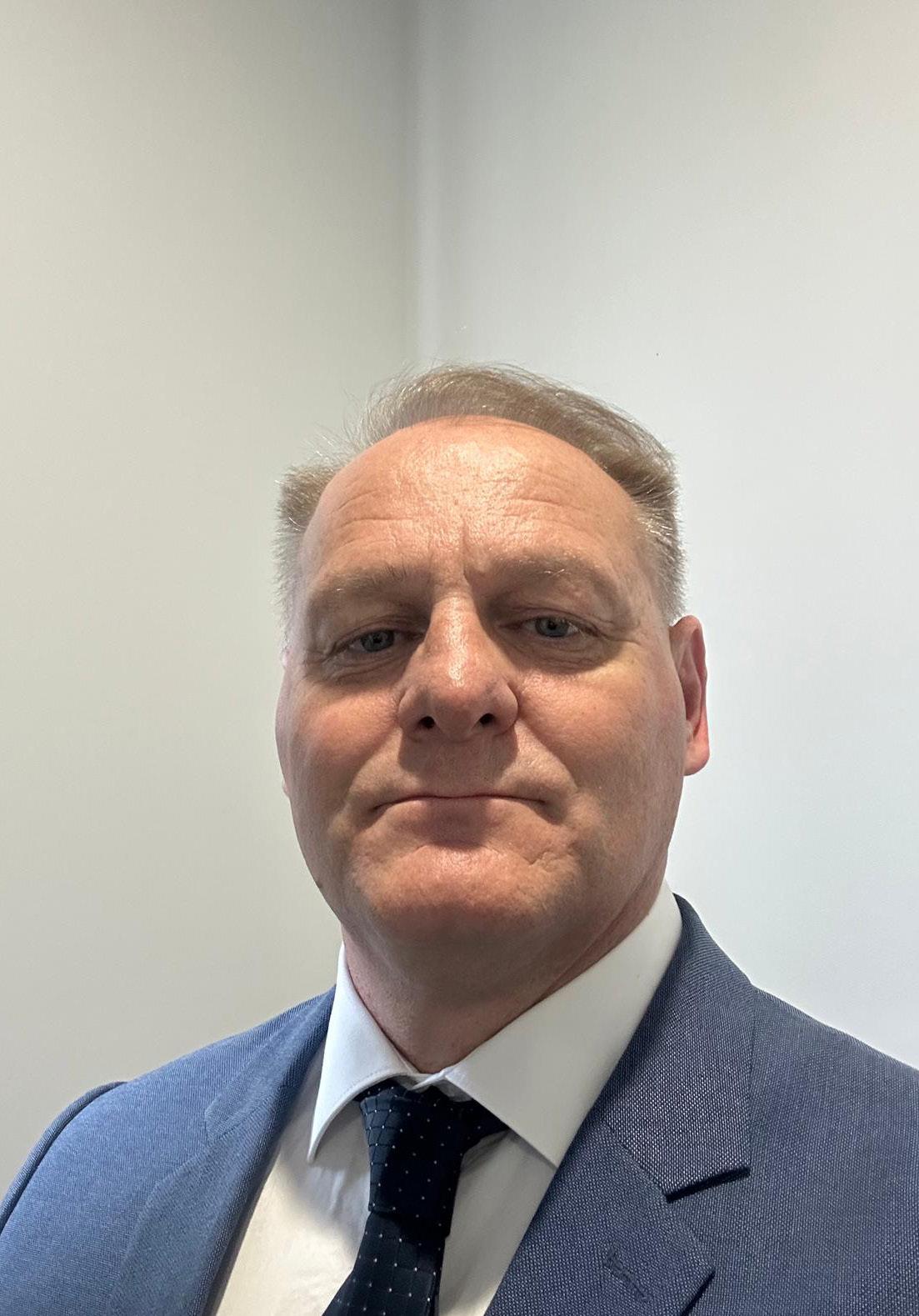
“As a 100 percent PNG-owned company, we are committed to prioritising local development. Our partnerships with international companies help fill workforce gaps whilst contributing to the communities where we operate.”

HBS recognised the need for a heavy-duty 6x6 tipper configuration for its operations in Papua New Guinea (PNG). Immediately after establishing HBS, the company became heavily engaged in the Harmony Goldfield Project at Hidden Valley in the Wau region.
Historically, PNG’s primary source of trucking capacity has been reliant on traditional Japanese brands, with limited exposure to European and American brands. After extensive research and brand comparisons, HBS decided to travel to Italy to explore the Astra range of products and configuration options.
What quickly became evident was that the Astra range was designed from the ground up as a heavyduty off-road prime mover. The chassis load capacity of Astra trucks is at least 8 tonnes heavier than all common European, American, and Japanese trucks. The model selected was the Astra HD8, equipped with a 440 hp Curser engine and the Astronic automatic transmission.
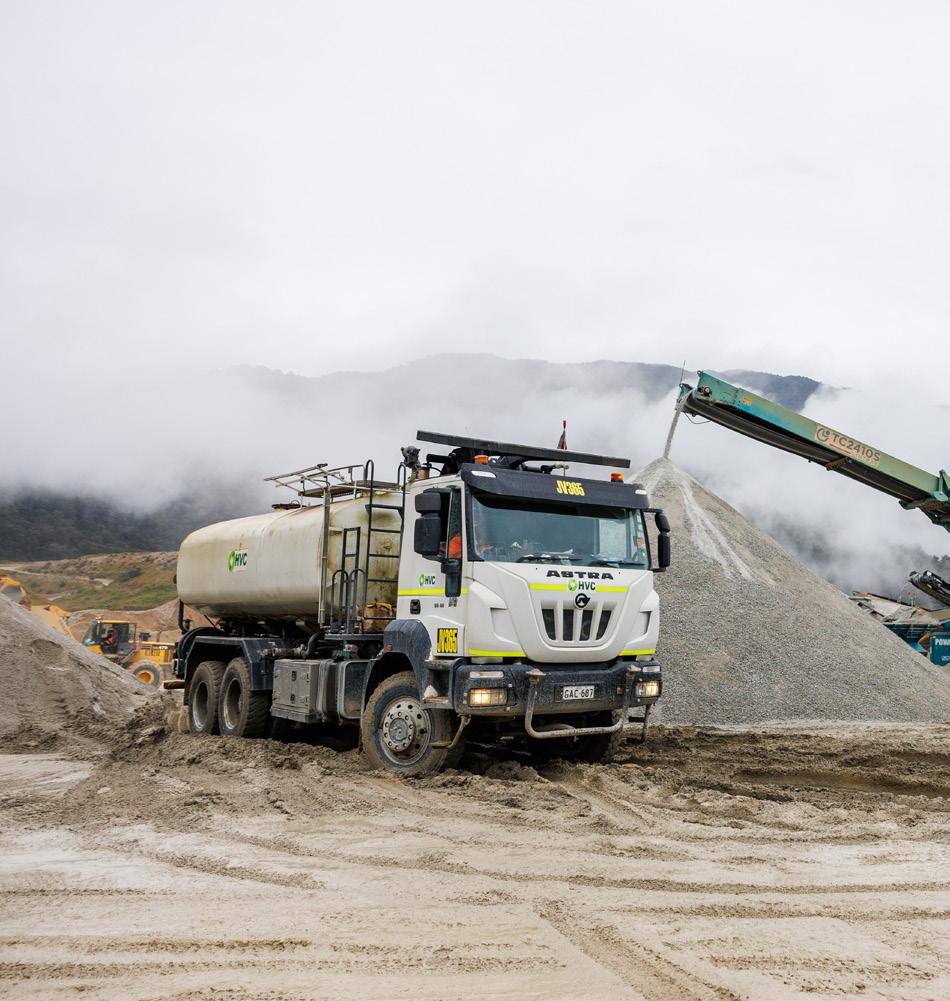
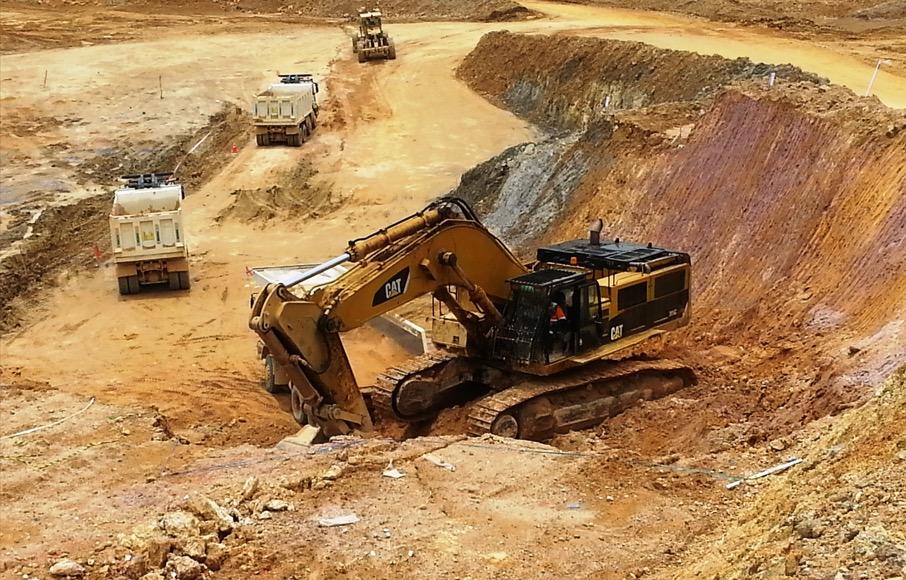
Once HBS committed to the Astra brand and the conceived specifications, an immediate challenge arose: identifying someone to manage product support, technical support, and maintenance for the brand. After an extensive series of interviews, HBS appointed Steve Draper as the Product Support and Technical Manager for the Astra brand.
As the Hidden Valley mine rapidly advanced, the HBS fleet expanded significantly, and within two years, the company was operating a fleet of over 50 units. Due to a complex downhill conveyor system developed for the mine and continuous delays, it became necessary for the mine to engage HBS to supply over 38 tipper units operating 24/7 under very challenging conditions. This included a roughly 8km fully loaded downhill haul, with a maximum grade exceeding 20% at one point and two wet crossings.
The first 20 Astra trucks are hauling a 56-tonne payload in Hidden Valley, tackling a 25 percent gradient.
Steve all driver A standout that trucks primarily braking 13-litre in 16-speed which safe without During several recommendations technical of fully future with incorporated

Steve Draper was heavily involved in all aspects of this operation, including driver training and maintenance issues. standout aspect of the training was that drivers learned to operate the trucks at full capacity while relying primarily on the exceptional engine braking capacity of the Curser 13-litre engine, a market leader performance, coupled with the 16-speed Astronic automatic gearbox, which allowed drivers to maintain safe travel speeds during the descent without exposure to brake overheating.
During this period, Steve identified several issues and made numerous recommendations to the Astra technical team. Over the years, many these minor adjustments have been fully adopted into the design of all future units produced at the factory, with no less than 15 recommendations incorporated into the Astra product line.
In 2016, HBS was given a similarly challenging downhaul at the Simberi operations. We then upgraded to a larger tipper, the HHD9, which featured an even larger payload capacity and an upgraded engine delivering 485 hp, now standard across all units in our fleet.
Due to the successful completion of the contract and a general reduction in work, Steve left HBS to join TWL in a similar role.
To date, HBS has become the 10th largest customer of the Astra Group, with over 600 units in operation.
Furthermore, we are proud to be the largest distributor in the Australia/New Zealand and Pacific markets.
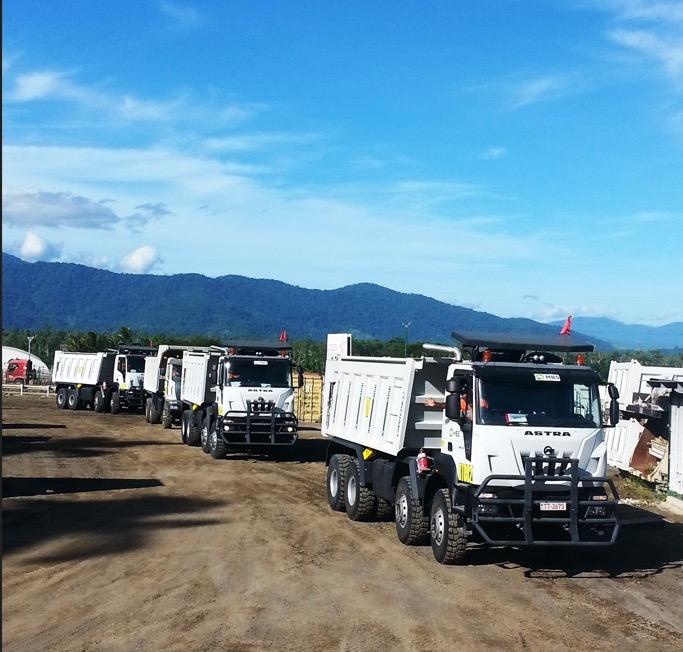
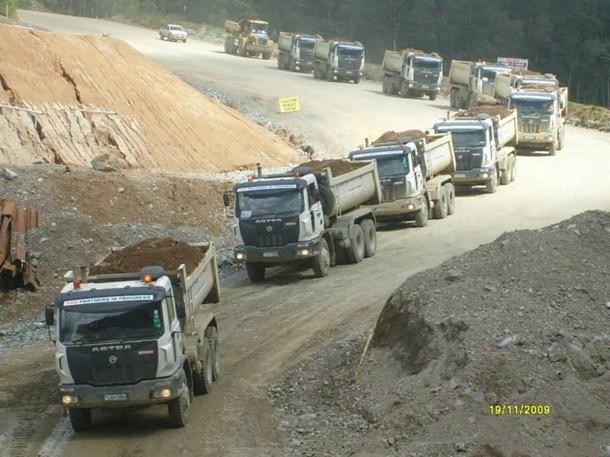
TWL operates in some of the most challenging environments globally, facing not only severely testing road conditions but also significant social challenges, including law and order issues and safety concerns. These factors create unique challenges, particularly in managing a large shareholder base while ensuring operational efficiency.
In light of these hurdles, the TWL team has united to become a beacon of excellence in the road haulage industry, focusing on business development and a steadfast commitment to shareholder interests over personal agendas.
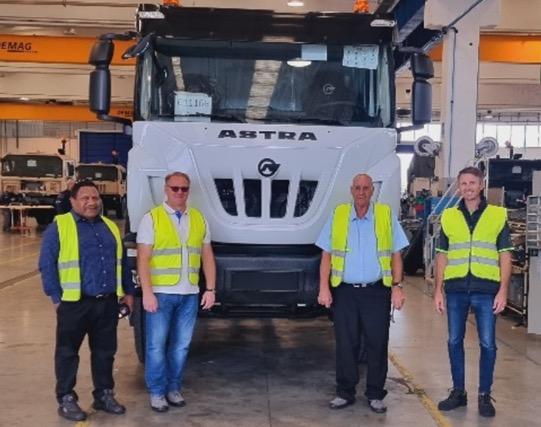
unless potential clients understood the true capabilities of the Astra brand, we would encounter significant difficulties in sales.
At this point, HBS was deeply engaged at the Hidden Valley mine, which was grappling with severe transportation issues. A major flooding event had drastically impacted road conditions at Mutzing, particularly affecting site access roads that were poorly constructed. Fully laden trucks were expected to navigate a particularly narrow section of road with a steep 25% grade.
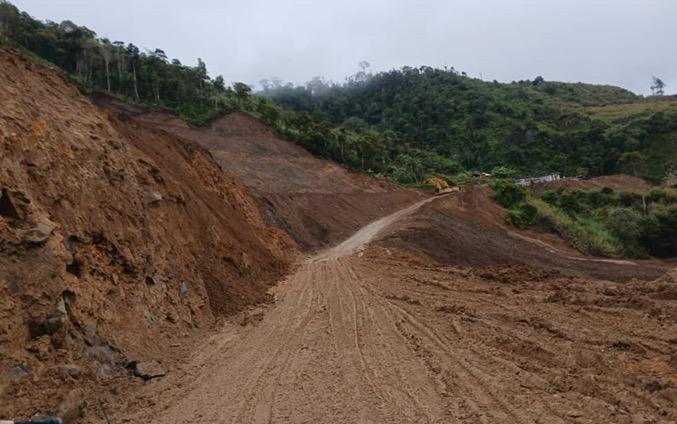
As the PNG LNG projects progressed, major contracts were awarded to various overseas contractors, and TWL became heavily involved in the haulage sector. HBS was approached to evaluate how our trucks compared in the local market and how they could handle major off road conditions.
Initially, the specifications for the trucks requested by TWL excluded automatic transmissions and other key features of the Astra brand, which posed a challenge for the Astra brand. It became clear that
Most trucks traversing this segment required towing assistance, and at various stages, the mine owner enlisted HVC (HBS Joint Venture with the landowner company) to provide machinery support. This included wheel loaders, graders, a log skidder, and eventually, a modified Astra Prime Mover to assist trucks through this challenging area.
Most trucks had a load restriction of 20 tons, but we arranged for an Astra Prime Mover to travel this road with a 30-tonne payload. A representative from TWL rode along in the prime mover, while another team member monitored the most difficult section from the ground.
During this test trip, the Astra was the only prime mover to successfully negotiate the challenging section without assistance. The ground crew observed that the Astra exhibited reduced wheel spinning due

to its hub reduction, and the transmission was consistently in the optimal range. The performance also demonstrated that the truck could achieve maximum torque at one of the lowest engine speeds available on the market.
Upon returning to Lae, the team promptly concluded that manual transmissions were not a viable option for their operations and committed to ordering 20 units of the HD8 with Astronic Transmissions.
Over the years, TWL has operated a diverse fleet under challenging conditions but has consistently recognised Astra as the most successful unit when the going gets tough.
Steve Draper has made several trips to the factory to address performance issues directly with the manufacturer. During one of these visits, he finalised the specifications for an Astra-based recovery unit, which has since been put into service. With over 10 years of operation, the unit continues to perform strongly.
TWL’s ingenuity is also showcased in its Toyota 6x6 adaptation HBS is dedicated to providing comprehensive assistance with spare parts consignments across various locations, and we are equally committed to supporting fleet management, especially after major accidents causing component failures. Our partnership with TWL has flourished for nearly 15 years, and we are eager to see it continue well into the future.
We have great respect for TWL’s achievements throughout the years, and the overall condition of their facilities, encompassing loading and operational areas, demonstrates a steadfast commitment to maintaining high standards that are often rare in PNG.
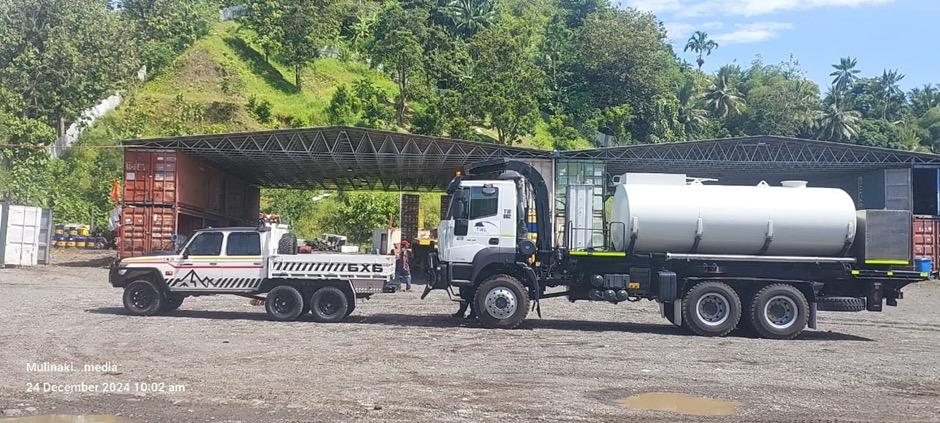
In 2023, Larry, Angelo, and Steve embarked on a trip to the factory in Italy to witness firsthand the production processes of the trucks. Since placing their initial order, TWL has significantly increased its commitments for additional trucks. In fact, TWL’s orders now surpass our own usage of the Astra product line.
Co-engineered by TWL and HBS, this fuel truck is designed for ultimate versatility. Built on the Astra HD9 66.48 (6x6) chassis, its modular design allows it to be taken apart like LEGO, seamlessly converting into a flatbed or a 20ft container carrier. This innovation makes it truly one-of-a-kind in PNG.

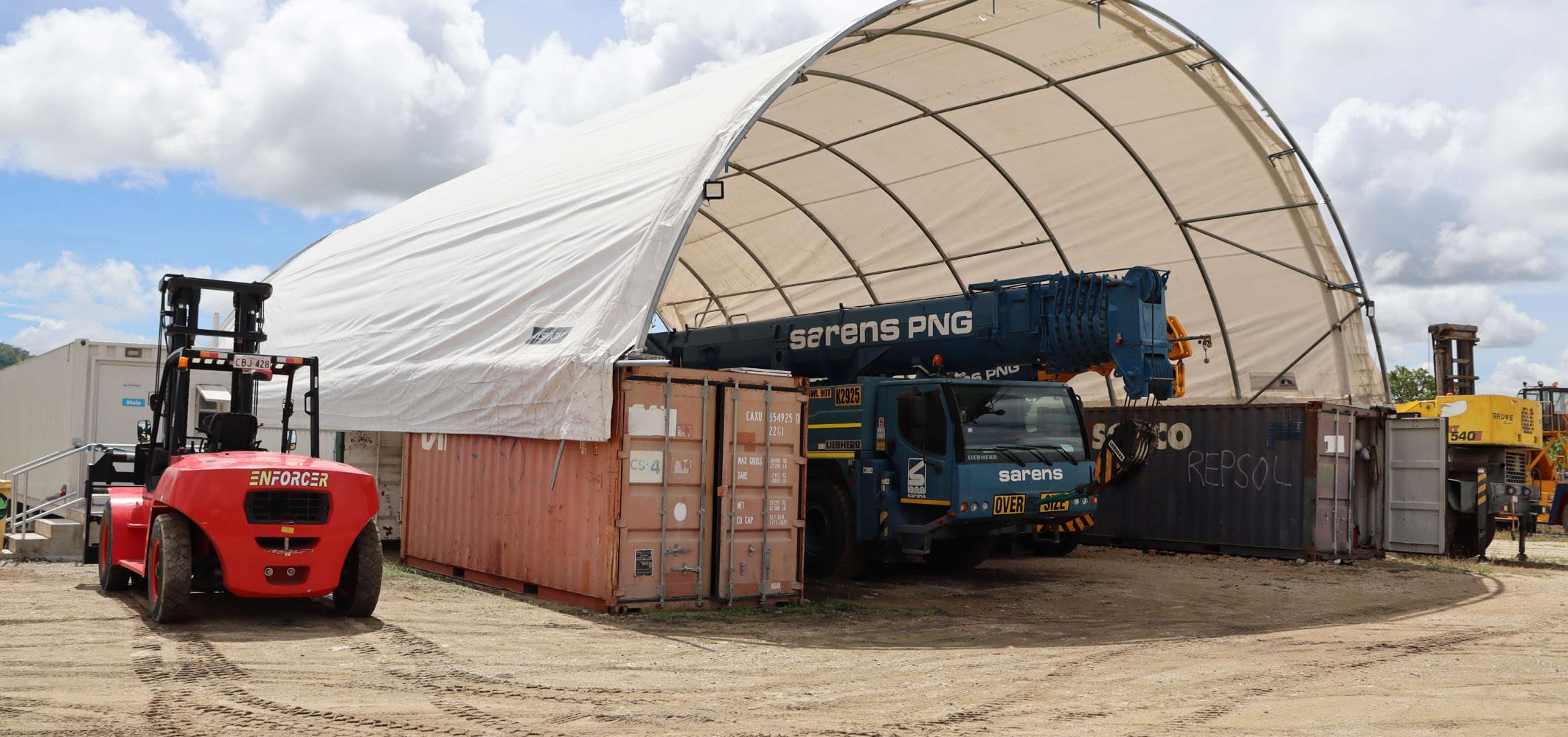
“We have done a half measure of snapping up other businesses by identifying international partners such as Pentagon Freight Services and Sarens, with whom we have developed great relationships. That is why we are still in the logistics business.
“It isn’t just a monetary gain – it’s knowledge and understanding of the different aspects of the industry. Our growth strategy is to look at acquisitions at some point in the future simply because we will need to,” Fury explains.
TWL’s tactic has been to partner with like-minded international businesses willing to impart knowledge and intellectual property to train young Papua New Guineans to be first-class operators in the logistics field.
“Larry’s philosophy has always been a 50-50 partnership – contribute, benefit, and lose equally. Business is simple, and that’s how we make money - we share,” Fury reveals.
By creating a transparent and honest environment, TWL values its partnerships and hopes for a long-term footprint rather than completing projects and leaving.
“We build in-country infrastructure where skills and expertise are passed on and developed. This is what we should be doing for our young Papua New Guineans, particularly in the extractive industries.
“That’s where PNG is right now; it’s similar to Arabian countries regarding its oil reserves. They’ve developed technology and knowledge because that’s their commodity and are extracting the maximum value from it,” Fury acknowledges.
In the long term, building a legacy business for PNG is the key to using fewer imported companies to conduct high-end technical work, such as drilling within the oil and gas and underground mining industries.
As a 100 percent PNG company, TWL wants people to maximise gains from the reserves that are beneath their feet daily.
“Indeed, other businesses within PNG are doing likewise,
Sustainability is central to TWL’s operations and vision for the future. One key innovation the company is embracing is dual-fuel equipment for its transportation fleet.
The company aims to significantly lower its carbon footprint by reducing greenhouse gas (GHG) emissions and enhancing fuel efficiency, which is crucial as the company manages a growing fleet.
In addition to dual-fuel equipment, TWL is actively exploring electric vehicles (EVs) for urban journeys. Since many of its operations involve short, round-trip routes averaging 40 to 45 kilometres (km), EVs present a viable solution for minimising emissions associated with idling diesel engines.
TWL has also established robust environmental, social, and governance (ESG) requirements increasingly necessitated by its international partners. This commitment is reflected in its excellent scores on corporate compliance metrics, demonstrating a proactive approach to ESG.
Furthermore, TWL recognises the importance of community engagement and support, ensuring that local people benefit from its operations through initiatives that pay dividends.
The company fosters a collaborative approach that enhances positive stakeholder relationships by providing information and involving community members in decision-making processes.
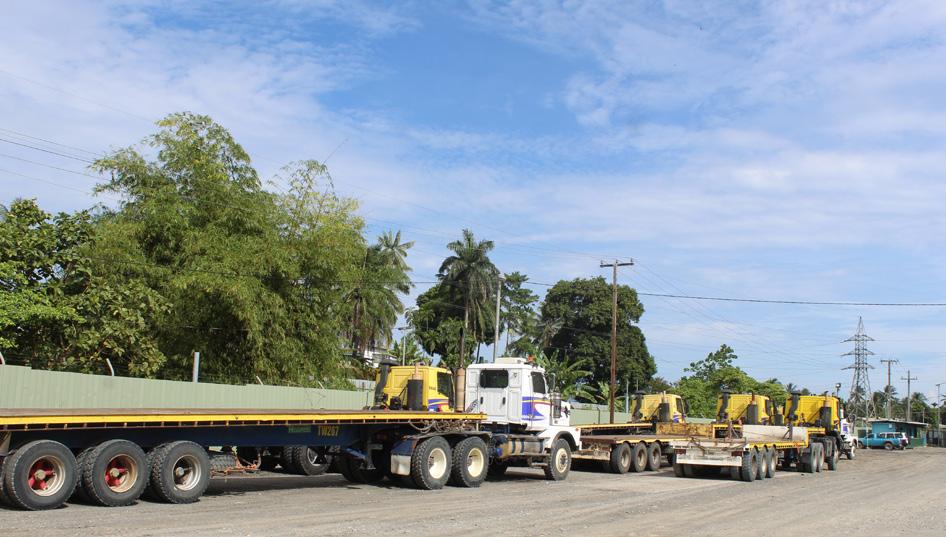
but when dealing with international partners, we ask how they can help us develop the next project and how much benefit we can derive from it,” clarifies Fury.
TWL believes that developing its local capabilities to achieve 100 percent of project requirements without relying on companies overseas is an attainable goal.
To support TWL’s operations, the company continues to develop its infrastructure covering sites in Lae, Goroka, Mount Hagen, Tari, Moro, and Port Moreseby.
“We are expanding our footprint and improving our depots, workshop, offices, and facilities for our drivers. Their accommodation is also very important to us; they must eat and sleep properly before departing on another journey, so that is an area of focus,” notes Andagali.
In PNG’s capital, Port Moresby, the company is building warehousing infrastructure, including a permanent home for its expanding operations.
“We also have an oil field and a gas field – that’s around 2.6 trillion cubic feet (cbft) and 74 million barrels of condensate still stranded in the Western Province, which we are trying to develop,” Andagali discloses.
Discussions are also being held on small-scale LNG to replace diesel usage at the Ok Tedi Mine.
“400 billion cbft of gas will be supplied to the OK Tedi Mine, an opportunity to embark on a very interesting project,” he continues.
Another vital project for TWL is the Stanley gas field in the Western Province, with the PDL 10 aiding the development of the PNG domestic gas market.
LNG can be supplied to generate power for coastal centres to create cleaner and cheaper energy.
“We are in discussions with PNG Power, which supplies diesel for the coastal centres, as we want to replace all the diesel generators with more cost-effective LNG ones,” Andagali divulges.
“LARRY’S PHILOSOPHY HAS ALWAYS BEEN A 50/50 PARTNERSHIP – CONTRIBUTE, BENEFIT, AND LOSE EQUALLY. BUSINESS IS SIMPLE, AND THAT’S HOW WE MAKE MONEY - WE SHARE”
– ANDREW FURY, GROUP COO
TWL is also collaborating with PNG’s national oil company, Kumul Petroleum, and international partners.
“We are open to developing our stranded gas fields, which we own. This will strengthen our position with our international partners, particularly with Sarens, whom we work closely with. Continuing to develop the capabilities between the two companies is important to us as we want a seamless transition,” announces Andagali.
In light of the upcoming Wafi-Golpu project, the expansion of ExxonMobil and Santos’ PNG operations, and the development of other oil and gas fields in the Western Province, implementing 3PL and 4PL models is critical for the company to enhance its in-house capabilities.
“Building infrastructure for our network, including warehouses to support our expansion into 3PL solutions, is critical for our growth strategy. We have a new racking system coming from Australia for our warehouse in Lae, which will allow greater flexibility in storing our clients’ cargo and is a change of strategy for TWL. From an operational perspective, that’s where our priorities lie,” Fury concludes.
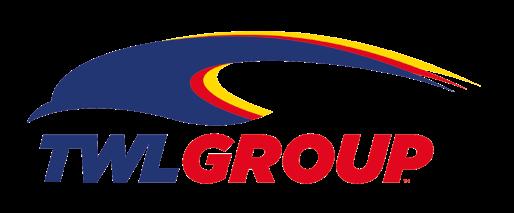
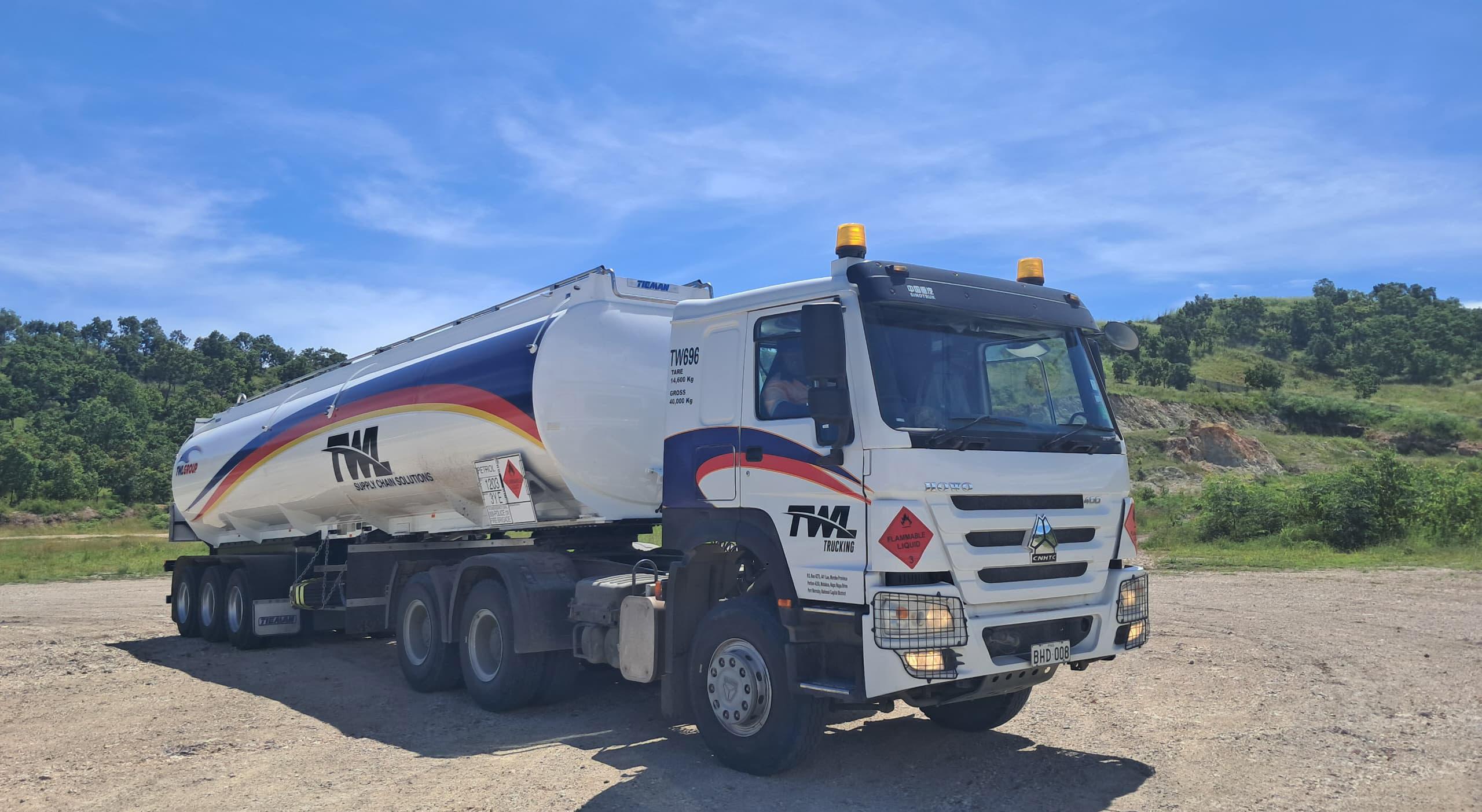
Tel: +675 320 2173
infotrucking@twl.com.pg www.twl.com.pg

